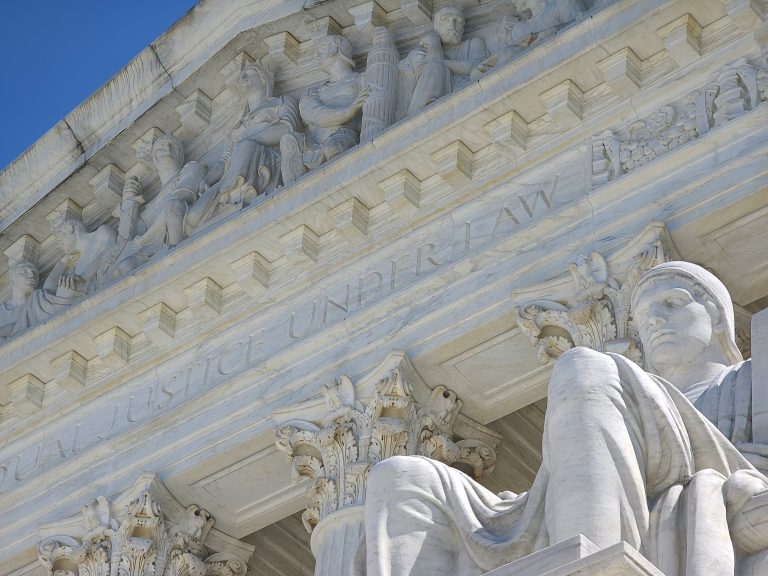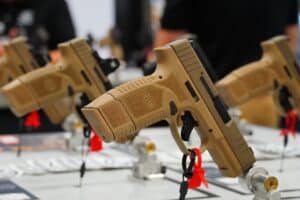This week saw the last statewide ban on stun guns and tasers struck from the books, which cemented the end of prohibitions on the less-than-lethal weapons as the top practical legacy of the Supreme Court’s Heller decision. It’s also an example of how the Court can defend its Second Amendment decisions.
Rhode Island was forced to give up its ban on Tuesday.
The ruling came after Massachusetts, Hawaii, New Jersey, Michigan, and Wisconsin had their total bans invalidated or repealed. Bans in cities such as Philadelphia, New Orleans, Tacoma, Baltimore, and Annapolis have faced the same fate.
This is, somewhat surprisingly, the result of the work of a single lawyer with a $10,000 budget. Alan Beck and a few friends were behind most of the cases that sacked the total taser bans across jurisdictions.
“I am overjoyed to overturn the electric arm bans of four states and several cities,” Beck told The Reload on Tuesday. “These rulings open the door to citizens having an effective less than lethal means of self-defense which is something which will save lives.”
Those rulings are also the only ones that represent a systematic dismantling of a series of laws based on the landmark Heller and McDonald rulings. Those rulings established the individual right to keep and bear arms in the specific context of personal ownership of handguns. But, to this point, it’s the ownership of stun guns that’s been recognized across the country as a result.
And that’s no coincidence. It’s the direct result of Supreme Court action. And it provides insight into what the Court will need to do if it wants to ensure any future precedents it sets on Second Amendment issues are followed.
In 2016, the Court unanimously ruled in Caetano that the Massachusetts Supreme Court was out of line when it upheld the state’s stun-gun ban. While the Court didn’t specifically speak to whether the less-than-lethal weapons are Constitutionally protected, it did knock down the argument stun guns weren’t protected because they were not in common use at the time of the founding.
The practical effect of this ruling was to eliminate one of the top defenses of stun-gun bans. That effectively forced the hand of lower court judges, who struck down the prohibitions even if they didn’t particularly like the Heller precedent.
Take Judge Willaim Smith, who just struck down the Rhode Island ban. He found the state’s total ban on stun guns “cannot survive a Second Amendment challenge” even at a lower level of scrutiny.
“The total ban of stun guns […] clearly lacks the required ‘substantial’ fit between the asserted governmental interest and the means chosen to advance those interests, and accordingly, violates the Second Amendment,” Smith wrote in his opinion.
This is despite the fact that in the same ruling, he included footnotes where he argued Heller’s “conclusion is not historically accurate, nor defensible as an example of Constitutional’ originalism.'” He attacked the landmark opinion as an “example of judicial activism or ‘living constitutionalism’ in as much as it reflected public sentiment dressed up in ‘law-office history.'”
Nevertheless, he concluded Heller is “the law of the land and binding on this Court,” and 2016’s Caetano went further in making stun-gun bans exceedingly difficult to uphold.
The Supreme Court is poised to take on a new Second Amendment issue with its upcoming ruling in NYSRPA v. Bruen: gun carry. If it strikes down New York’s restrictive “may-issue” concealed carry permit law, which allows government officials to deny permits to those they subjectively determine don’t have a “good reason” to need one, the Court will need to diligently follow up on that ruling if lower courts attempt to sidestep its intended outcome.
Stun-gun litigation provides further insight into how things may play out if the Court does strike down “may-issue” laws. The first thing to notice is the Supreme Court weighed in on the bans in 2016, and the last statewide ban was just tossed this year. That’s six years of legal action across the country to get rid of these laws even after it was clear they likely couldn’t stand up in court.
And there are a few cities and localities that still have them on the books even now.
Plus, Hawaii has employed a tactic likely to be used by current “may-issue” states if their concealed carry laws are struck down. After the state’s stun-gun ban was struck down, it sought to regulate the purchase of the devices. Now, Beck says, it’s also considering restricting where they may be carried.
States forced to abandon their “may-issue” carry laws will likely adopt the same approach. In fact, we’ve already seen it happen in Washington, D.C., which adopted one of the strictest carry permitting regimes in the country short of “may issue.” Many affected states will probably follow that example leading to protracted fights over those new regulations.
Additionally, gun-carry law litigation will likely be a heavier lift than stun-gun litigation. There’s certain to be more money for the cause since it more directly impacts the core mission of the country’s top gun-rights groups. However, it’s also likely to be far more controversial than stun-gun litigation and less likely to garner a unanimous decision from the ideologically-divided Court.
Still, if the legal fight against “may-issue” carry laws is as successful as the one against stun-gun bans, it will be a major win for gun-rights advocates regardless of how drawn out and complicated the tail end of it becomes.






